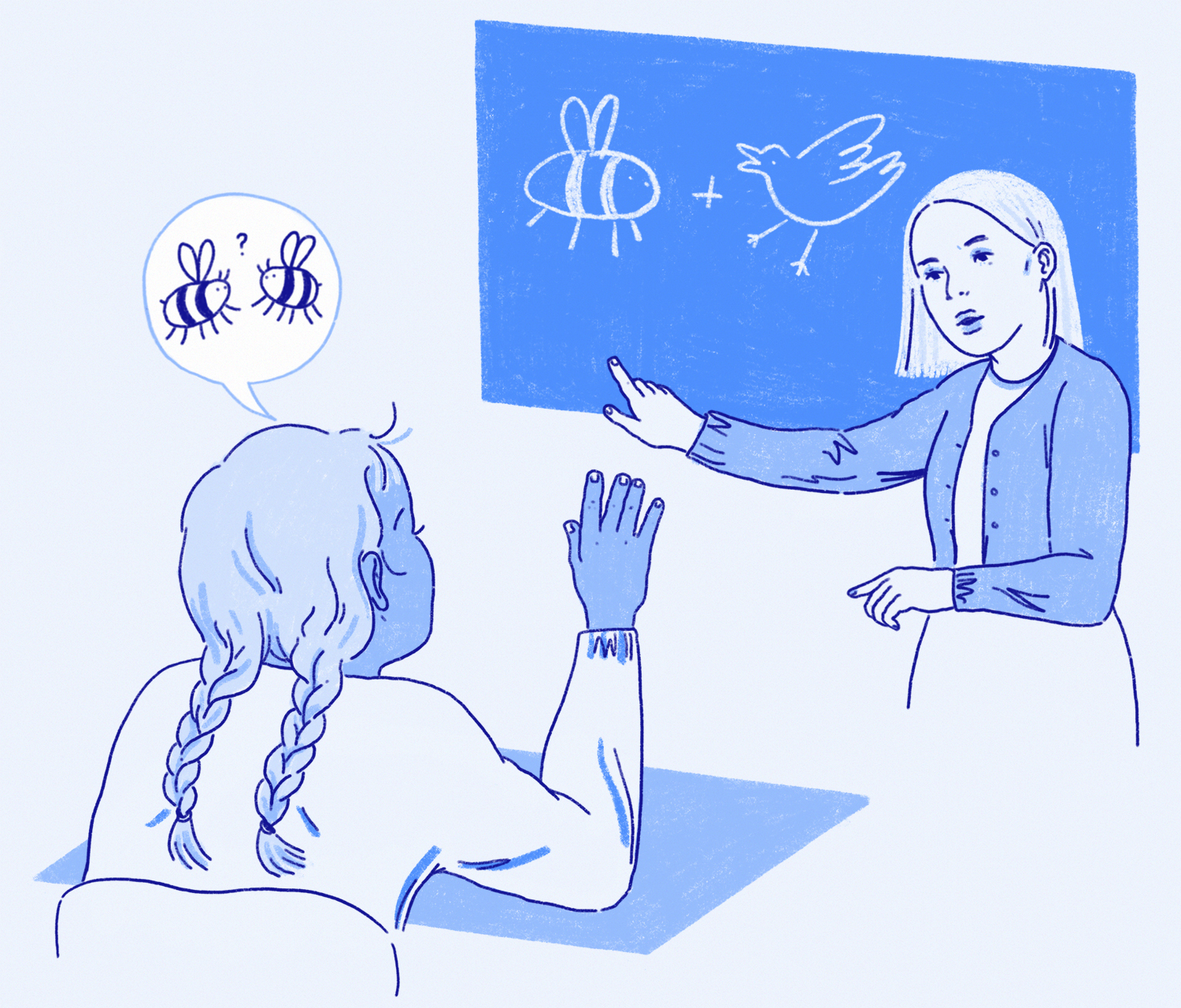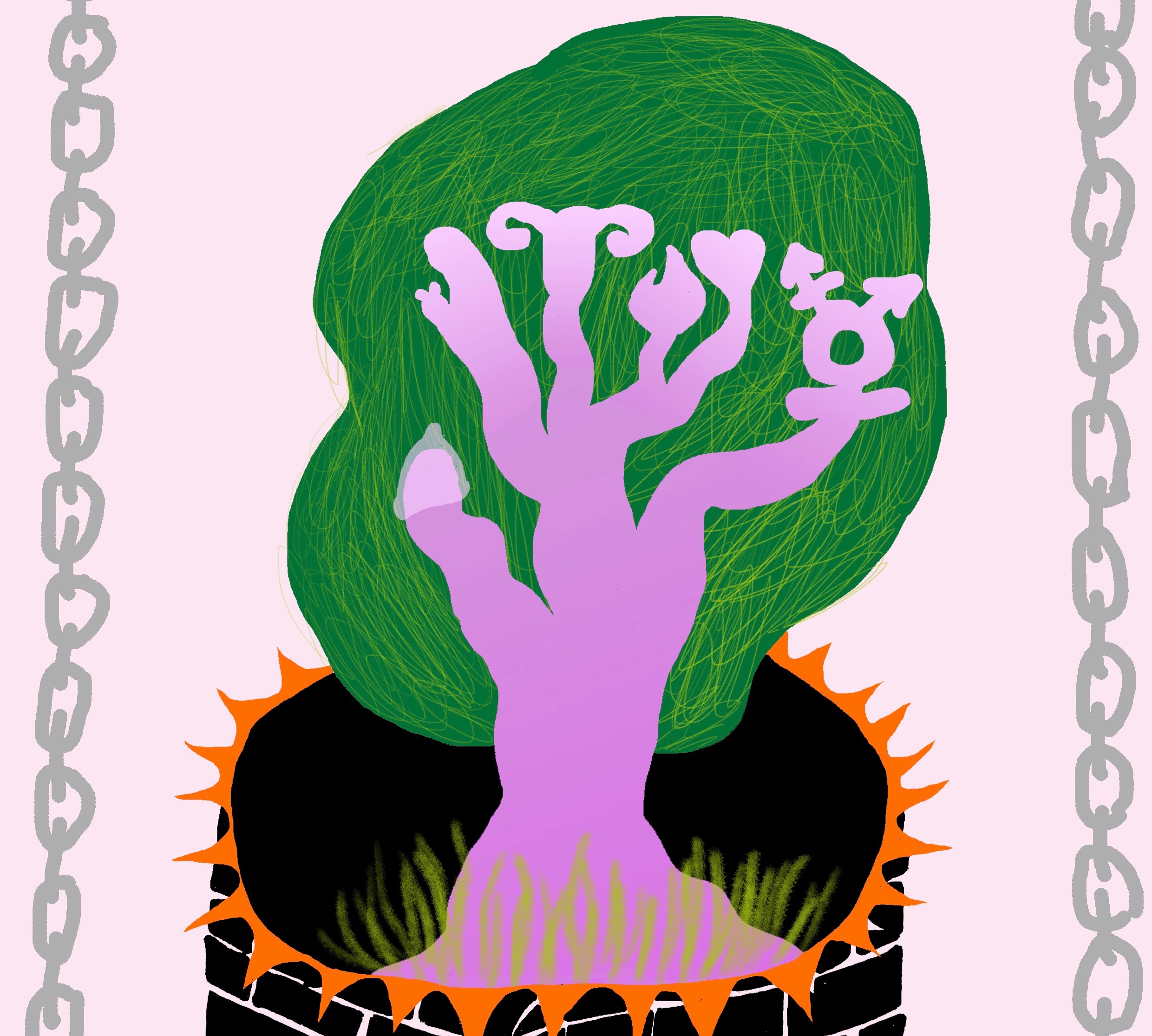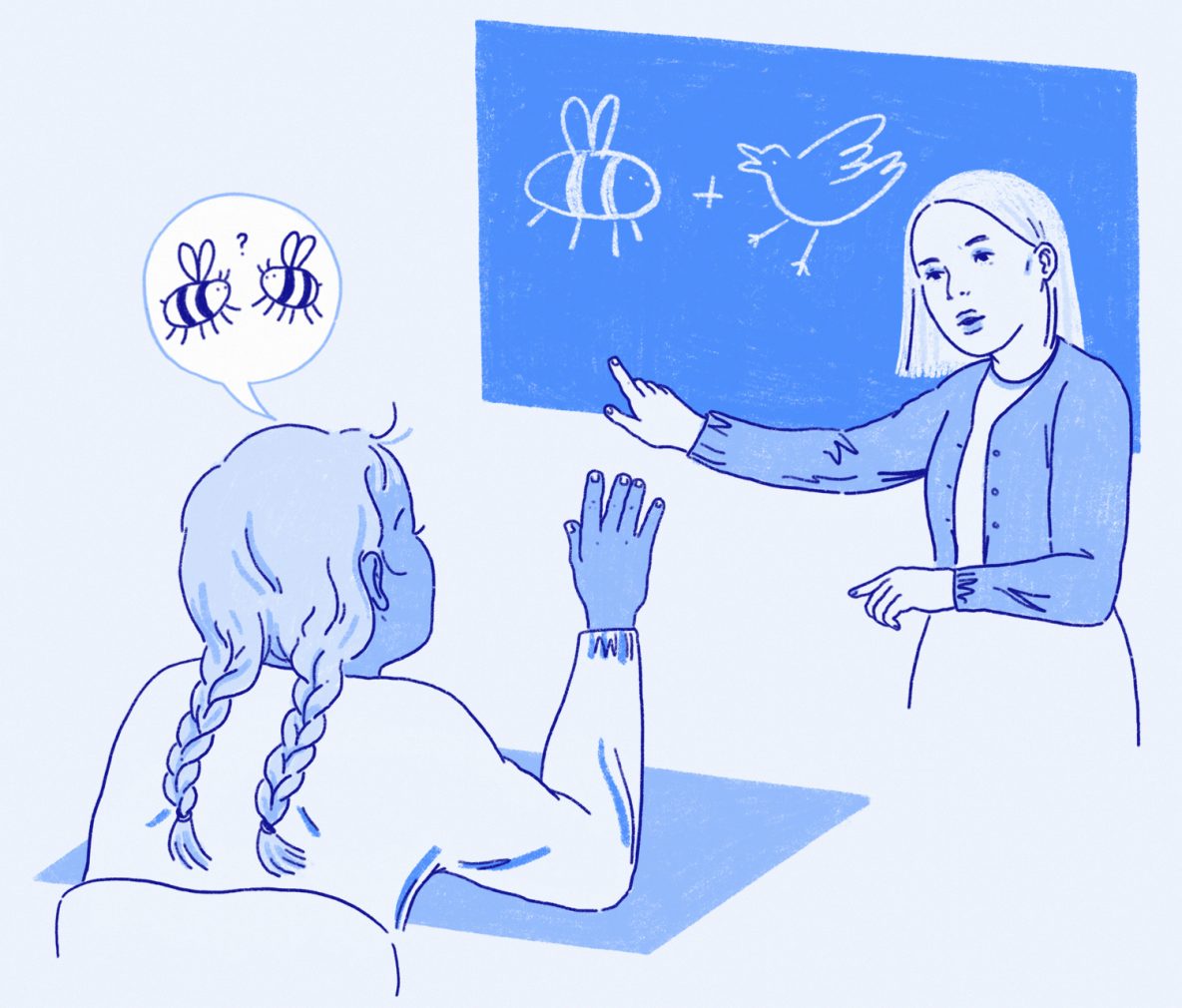"Education not Indoctrination"
By Sasha Shuttleworth

Illustration by Eve Archer
The title of this piece is taken from a placard held by one protesting parent outside Parkwood school in Birmingham. The alleged indoctrination: LGBTQ+ inclusive sex and relationship education.
Sex and relationship education is an inherently contentious subject. The debate surrounding the curriculum has been on going ever since its first mandatory introduction in 1993. It is often said that John Major’s 1993 Conservative government’s education act was created largely in response to the aids epidemic. Its purpose was to be provided in ‘such a manner as to encourage young people to have regard to moral considerations and the value of family life’. This thread of morality has underpinned much of the debates around sex ed. No more so than the recent controversy surrounding Parkland Community primary in Birmingham. Recently hundreds of children were withdrawn from the school by their parents in protest to the lessons on challenging homophobia and teaching children about homosexuality. This incident sparked fresh debate in the House of commons where once again MP’S have been debating what children should, and should not learn and just how far parent’s viewpoints should be considered.
After reading the ‘Relationships and Sex Education Briefing Paper’ published in the house of commons 2018 I found that 65% of schools in the UK are classified as ‘Academies’ or ‘free schools’. Therefore, they do not have to follow even the basic mandatory sex and relationship education guide lines set out by the government. In fact, the only truly mandatory aspects of sex and relationship education is reproductive education lessons in state secondary schools. It is up to the primary school’s discretion whether they provide any sex or relationship education at all. It is however, worth noting that if academies or free schools do choose to opt in for sex and relationship education they must follow government guide lines.

Illustration by Molly Benge
Following the Parkland community walk outs, which were a part of a nationwide campaign from IslamicRSE; encouraging Muslim parents to withdraw their children from same sex education lessons in primary schools. Andrea Leadsom, leader of the house stated in an interview that “parents should be able to choose the moment at which their children become exposed to that information.” She followed this by stating that she had always been a "massive supporter of the efforts we have made to achieve real LGBT equality".
Lloyd Russel Moyle Labour MP for Kemptown rebuffed this claim. Speaking passionately in the house commons he directed his disappointment to the Prime Minister. "I know the Prime Minister campaigned to keep Section 28, which banned LGBT people being talked about positively in schools, and led to millions of young people, like myself, growing up in fear of being LGBT," he said. "I thought the Prime Minister had seen the error of her ways, but this morning the leader of the house said on radio that parents should decide when they [their children] are exposed to LGBT education.".
His concerns are not unique. Sex educators and activists such as Stonewall argue that sex education which includes a comprehensive explanation of LGBTQ+ relationships protects young people and encourages them to foster healthy attitudes towards relationships.
It is all too easy to scapegoat all reactionary responses to sex and relationship education onto religious communities instead of viewing them as the offspring of widely held beliefs around education and morality. Yes, concepts associated with faith have a profound affect on a person’s views regarding sexuality and relationship education, but so do many other factors. I can personally testify to this. I grew up in a city widely regarded as one of the most progressive in the UK (Brighton), a city which playfully competes with Manchester in being the LGBTQ+ capital of England.
While I was in education I received little to no sex and relationship ed which applied to my orientation as a bi sexual woman.
The little LGBTQ+ sex education I did receive was to do with cis gay men, mostly in relation to HIV and AIDS. Which is a remarkably negative and negligent way to educate young people about same sex relationships. For me and my peers it was the legislation we were living under, not the faith or lack of in our community which defined our education. If we look back to our history of improving the rights of those previously disregarded by the education system, concrete legislation is at the heart of every significant change. Without it change is slowed down and leaves our young people at significant risk. Not only in terms of their sexual health, but their relationships and sense of identity at a time in their lives where these things are heightened, and in flux.
Surely, sex education should not be about preaching prescriptive and limited ideals around who you should love or how you should present yourself. Rather, it should give young people the knowledge and tools to be able to make their own choices, and support others in making theirs. Looking forward to the future it seems likely that these debates will continue to present themselves on a regular basis. As we all know, the government is currently in a state of BREXIT inspired crisis. Subsequently, serious debates around sex education have been neglected, and will probably continue to be neglected until the government is able to find any sense of progression.
Until then it’s important that we begin to educate ourselves on the history of our legislation. It is wise to be wary of having knee jerk reactions to inflammatory news articles designed to divide opinions rather than create a basis for a healthy debate. At the same time, we must reinforce the idea that concepts such as consent, boundaries and identity are not pieces of inherent knowledge. They are idea's which we learn as we are growing up. All too often we don't always learn what we need to become happy and healthy adults. A lot of us didn't receive adequate education when it came to these concepts and we suffered because of this. Young people will continue to suffer if they aren't supported in learning these fundamental building blocks of how to become a healthy, responsible adult.
Art by
Words by
Share this article

